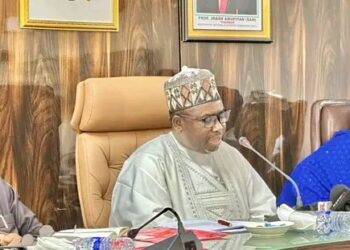According to them, IPMAN should consider the masses by putting their interest above theirs.
They spoke to the News Agency we of Nigeria (NAN) on Sunday in Abuja.
NAN reports that the chairman, IPMAN Depot Chairmen Forum, Alhaji Yahaya Alhassan, had on Monday gave the Nigerian Midstream and Downstream Petroleum Regulatory Authority (NMDPRA) a seven-day ultimatum to pay up the more than N100 billion debt.
According to him, failure to settle the outstanding claims will result im the shutdown of depots and the withdrawal of services.
A civil servant, Mr Anderson Eze, said that if they go ahead with the planned strike, it would affect the economy and the vulnerable citizens more.
” Low income earners will suffer more and it will make life difficult for us, I advice they settle this in amicably.
” This will also affect business, most businesses are not thriving and this will affect the economy as well,” he said.
Eze said that in spite the subsidy removal, they still want to go on strike, the marketers make more money now because of deregulation.
He urged the Federal Government to intervene in the matter that was threatening the peace of the country. 13
Mr Mayowa Lasisi, a taxi driver, recounted his frustration during the scarcity, how he arrived the petrol station at 8:00 a.m. and was only able to get fuel at 6:30 p.m.
” During that time, I spent all my day at the petro station and left late, this will make me not work and if I do not work how will my family feed?.
Lasisi urged the government to intervene to ensure a lasting solution.
Another taxi driver, Mr Sani Bello, said the strike would affect his means of livelihood.
“I will be running at a loss because I spend hours on the queue and still buy fuel at a high cost, how do I balance this?
“My family depends on my daily returns, and it has not been easy meeting up. I do not know what to do.
“I am begging President Bola Tinubu to do something fast about the suffering Nigerians are passing through as a result of this fuel issue, In spite the full deregulation of the sector.
“It is not easy for a lot of us anymore,” Bello said.
NAN recalls that the national president of IPMAN), had in a statement issued on Thursday said that the Federal Government had promised to pay the outstanding bridging claims as well as resolve other issues soon. (NAN)









